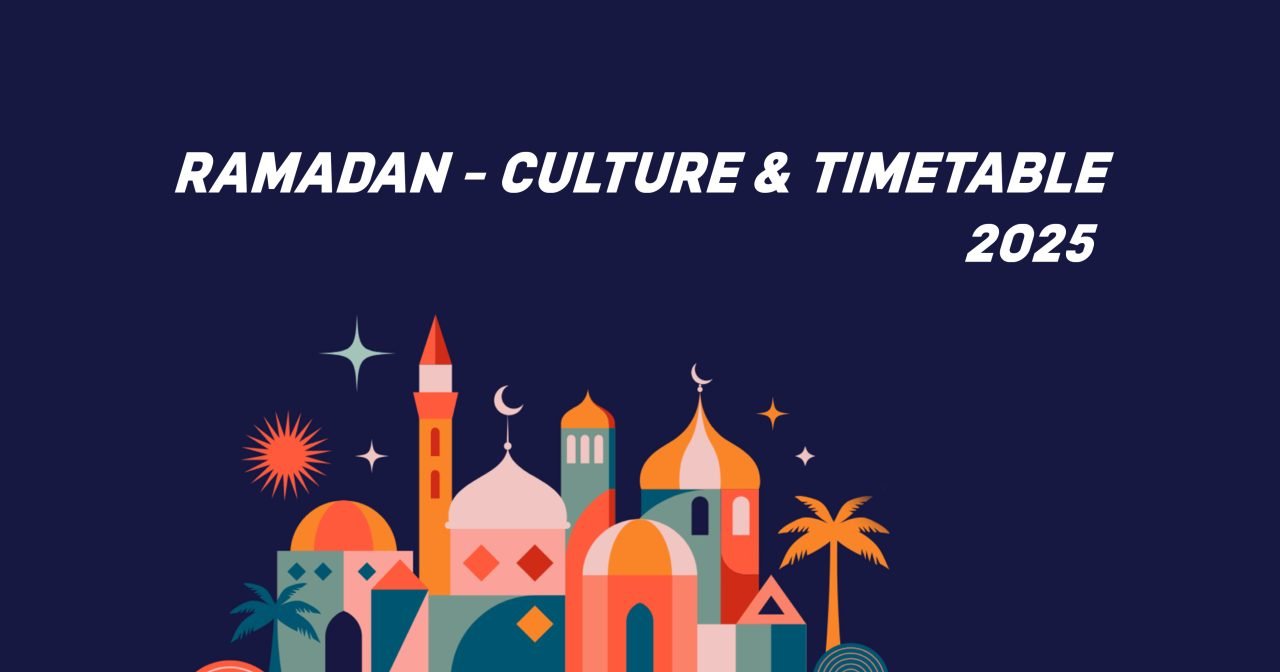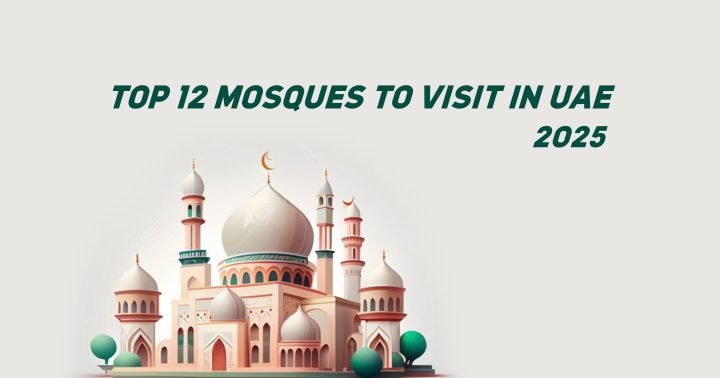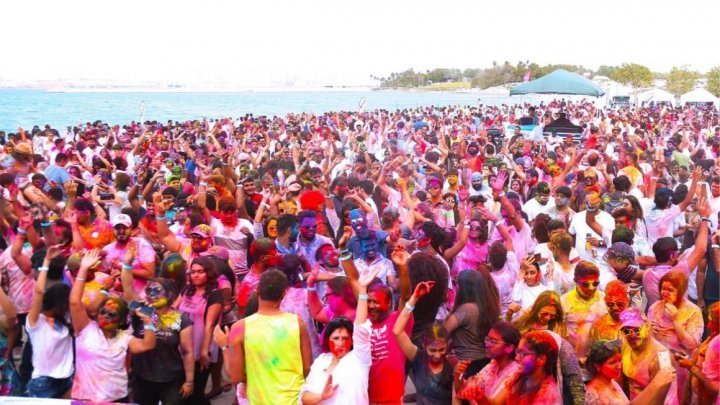Spirituality comes with trust and love for the religion. In 570 CE, Prophet Muhammad (peace be upon him) a deeply spiritual man, was visited by the angel Jibreel who ordered him to recite. That was the day since Muhammad (PBUH) started sharing the words of God. Muslims believe Islam is a religion that has existed for centuries to heal mankind. In A.D. 610, the archangel Gabriel revealed the Quran to Prophet Muhammad (peace be upon him). It is the highest priority Muslim scripture that teaches humans how to evangelize to God and live a peaceful life.
Prophet Muhammad (PBUH), chosen as Allah’s messenger, preached God’s words and teachings to the masses and unlocked several cultural facts, and those were recorded. These teachings were then transferred in text form, and that’s how the holy Qu’ran was completed. The ideology behind his preachings clearly stated that one should submit one’s life to Allah for growth and betterment. Muslims have preserved the Prophet’s teachings in their original Arabic language. They are anchored to the scriptures, and they have followed the traditions for generations.
Origin of Ramadan
Apart from spiritual teachings and ways of life, the holy book also mentions the origin of Ramadan. It began with the revelation of the Quran to the Prophet Muhammad (PBUH), which is why it is called the ‘Night of Power’ or ‘Laylat Al-Qadar’. It is a happy occasion for Muslims because God’s disciples reached the earth to make the religion more diverse. This holy month is a time of worship, Quran study, and fasting.
By celebrating Ramadan, Muslims develop a connection with Allah and Taqwa (awareness) that cleanses all your sins. In Book 6, number 2378, the Prophet said that one should observe fast whenever one sees the new moon and end it when the sky is cloudy or the new moon of Shawwal appears. In other words, Muslims must fast for 30 days, during which they should pray and give zakat.
| Interesting Facts about Ramadan Do you know when and where Ramadan was first celebrated? Ramadan was first celebrated in 624 CE in Medina. This was during the second year of the Islamic calendar. It marks the month when the Quran was revealed to Prophet Muhammad. |
Walking Down The Lane Of The Divine Islamic Revelation
Prophet Muhammad (PBUH) lived in Saudi Arabia, where he meditated in the cave of Hira, located in the Jabal al-Nour mountains near Mecca. While meditating, the angel Jibreel (Gabriel) appeared and revealed the first words of the Quran. This marks the beginning of the Revelation of Islam. The words mentioned by the angel were directly from Allah and emphasized that “He” is the only God Muslims should worship.
After revealing the words, the angel commanded Prophet Muhammed (peace be upon him) to recite about these divine revelations. Although. he wasn’t fluent in reading or writing, the Prophet recited the words perfectly. The angel even told him that Muhammad (PBUH) was the final of the Prophets chosen by Allah. Accordingly, Prophet Muhammad spread the teachings of Islam.
Muslims worldwide believe this divine event occurred on the 27th night of Ramadan, known as Laylat al-Qadr. Over the next 23 years, Prophet Muhammad (peace be upon him) received revelations that established the five core pillars of Islam. These teachings continue to shape the faith of millions, particularly during the blessed month of Ramadan.
5 Pillars Of Islam – Foundation Of The Religion & Beliefs
In A.D. 622, the Hadith of Gabriel outlined a few principles that emerged to become the five main pillars of Islam. These pillars come from the Quran but are not clearly defined in it. Despite ethnicity or region, Muslims accept and practice these norms. Here are the five pillars of Islam every Emirati must know:
1. Shahadah
The first pillar of Islam is Shahadah, the declaration of faith. It states that there is no other God than Allah, and Muhammad (PBUH) is one of HIS messengers. Thus, believing in Allah is the initial stage of following the religion. Islamic scholars have vastly discussed this principle. Muslims believe that Allah is the only creator and king of this universe.
2. Salah
The second pillar of Islam is Salah, which means prayer. Prayer is a fundamental act of worship that strengthens your connection with Allah. You must pray five times a day. This makes Salah an essential part of daily life.
The five prayers are:
- Fajr: before dawn
- Dhuhr: after the sun reaches its highest point
- Asr: in the afternoon, before sunset
- Maghrib: just after sunset
- Isha: at night
Salah is believed to be part of your lifestyle for your entire lifetime. It is recommended to find time daily to perform salah in the mosque. However, you can perform it at school, work, and outdoors.
3. Zakat
Sharing is an act of kindness, and true followers of Allah are always ready to give more to those in need. Zakat, the third pillar of Islam, emphasizes social responsibility and charitable giving. It is considered a part of service to Allah.
This pillar encourages you to help the community by donating to charity. Zakat teaches us that nothing is truly ours. Rather everything belongs to Allah, so we should have a big heart to share them. By giving to others generously, you can cultivate compassion, promote social balance, and fulfill your duty to create a harmonious society.
4. Sawm
The fourth pillar of Islam, Sawm states that you should fast during the holy month of Ramadan. This strengthens spiritual awareness and deepens your connection with Allah. It is believed that the Quran was revealed to Prophet Muhammad (peace be upon him) during Ramadan, making it a sacred time for devotion.
Ramadan fasting involves abstaining from eating, drinking, or sexual activities from dawn till sunset. The fourth pillar even showcases the sufferings of the poor. This helps you to have a greater awareness of Allah’s presence and provisions. Swam is simply a way of acknowledging one’s gratitude for the creator.
5. Hajj
The pilgrimage to Mecca is considered the fifth pillar of Islam, a fundamental religious duty for Muslims worldwide. For any Muslim, Mecca or Makkah marks the journey to faith and unity. Once in life, you should visit the mosque. Over 20 million people gather together in this holy city to preach Allah and his sayings and this number reaches over 30 million during Ramadan.
Performing Hajj even includes a pilgrim with rituals that Prophet Muhammad (PBUH) performed during his last pilgrimage. During the holy month of Ramadan, Umrah is considered Hajj. However, Hajj itself is distinct from Ramadan’s celebrations, as it is marked by solemnity, reflection, and spiritual purification.
By completing the Hajj, you can reaffirm your faith and strengthen your connection to Allah, making it one of the most spiritually fulfilling experiences in Islam.
| Interesting Facts about Ramadan Do you know how many Emiratis observe Ramadan? According to a survey, about 96% of Muslims worldwide perform all traditions and rituals during Ramadan every year. |
Essential Ramadan Fasting Rules for Every Emirati
Celebrating Ramadan is a time of self-reflection, discipline, and spiritual growth. Fasting from dusk till dawn embarks the resistance power in a human. Before you start fasting, fill your stomach with a course meal which will help you carry out the day-to-day activities.
The day begins with Suhur, a pre-dawn meal to help you sustain energy for daily activities. After the sun goes down, the time for Iftar commences, which means you can break your fast with dates, water, or milk, followed by a nutritious dinner. You are recommended to eat fiber and drink lots of fluids to sustain for longer periods.
Reports suggest, around 98% of Muslims worldwide observe Ramadan, which signifies the interesting combination of authenticity and togetherness. Fasting is compulsory for all, and there are no loopholes for healthy adults. However, exemptions apply to pregnant women, older people, kids, and those with health conditions to ensure well-being.
Don’t forget! Ramadan is more than just abstaining from food; it’s a journey of spiritual renewal, gratitude, and unity.
Valid Reasons for Ramadan Fasting Exemptions in Islam
Islam focuses on its people and their goodwill. You can find various flexibilities in fasting rules based on age, health, and circumstances. Certain groups are exempted from fasting, including:
- Elderly individuals: They come with weakness and various health concerns, due to which older adults are excused from fasting.
- Children: Those who haven’t reached puberty can skip Swam based on their health.
- Pregnant or breastfeeding mothers: If fasting affects their well-being or that of their child, they are exempted.
- Physically or mentally ill individuals: Those unable to fast due to medical conditions are excused.
- Travelers: Since time zones and schedules can impact fasting, travelers are permitted to postpone their fasts.
However, it is recommended that you fast during the six days of Shawwal (the month following Ramadan) because it equals a year of fasting if accepted by Allah. Shawwal serves as the month after Ramadan, filled with rewards for worshippers.
UAE Ramadan Prayer Timetable 2025
Ramadan is here, which means Muslims worldwide need to monitor the sacred times for prayer. Here is a table featuring the times to follow and preach Allah with devotion. The timetable below is according to the UAE timings.
| Ramadan Day No. | Dates | Imsak | Fajr | Sunrise | Dhuhr | Asr | Iftar | Isha |
|---|---|---|---|---|---|---|---|---|
| 1 | 01/03/2025 | 5:15 AM | 5:25 AM | 6:38 AM | 12:34 PM | 3:53 PM | 6:24 PM | 7:38 PM |
| 2 | 02/03/2025 | 5:14 AM | 5:24 AM | 6:37 AM | 12:34 PM | 3:53 PM | 6:24 PM | 7:38 PM |
| 3 | 03/03/2025 | 5:13 AM | 5:23 AM | 6:36 AM | 12:34 PM | 3:53 PM | 6:25 PM | 7:39 PM |
| 4 | 04/03/2025 | 5:12 AM | 5:22 AM | 6:35 AM | 12:34 PM | 3:53 PM | 6:25 PM | 7:39 PM |
| 5 | 05/03/2025 | 5:11 AM | 5:21 AM | 6:34 AM | 12:33 PM | 3:53 PM | 6:26 PM | 7:40 PM |
| 6 | 06/03/2025 | 5:10 AM | 5:20 AM | 6:34 AM | 12:33 PM | 3:53 PM | 6:26 PM | 7:40 PM |
| 7 | 07/03/2025 | 5:09 AM | 5:19 AM | 6:33 AM | 12:33 PM | 3:53 PM | 6:27 PM | 7:41 PM |
| 8 | 08/03/2025 | 5:08 AM | 5:18 AM | 6:32 AM | 12:32 PM | 3:53 PM | 6:27 PM | 7:41 PM |
| 9 | 09/03/2025 | 5:07 AM | 5:17 AM | 6:31 AM | 12:32 PM | 3:54 PM | 6:28 PM | 7:42 PM |
| 10 | 10/03/2025 | 5:06 AM | 5:16 AM | 6:30 AM | 12:32 PM | 3:54 PM | 6:29 PM | 7:42 PM |
| 11 | 11/03/2025 | 5:05 AM | 5:15 AM | 6:29 AM | 12:32 PM | 3:54 PM | 6:29 PM | 7:43 PM |
| 12 | 12/03/2025 | 5:04 AM | 5:14 AM | 6:28 AM | 12:31 PM | 3:54 PM | 6:30 PM | 7:43 PM |
| 13 | 13/03/2025 | 5:03 AM | 5:13 AM | 6:27 AM | 12:31 PM | 3:54 PM | 6:30 PM | 7:44 PM |
| 14 | 14/03/2025 | 5:02 AM | 5:12 AM | 6:26 AM | 12:31 PM | 3:54 PM | 6:31 PM | 7:44 PM |
| 15 | 15/03/2025 | 5:01 AM | 5:11 AM | 6:25 AM | 12:31 PM | 3:54 PM | 6:31 PM | 7:45 PM |
| 16 | 16/03/2025 | 5:00 AM | 5:10 AM | 6:24 AM | 12:30 PM | 3:54 PM | 6:32 PM | 7:45 PM |
| 17 | 17/03/2025 | 4:59 AM | 5:09 AM | 6:24 AM | 12:30 PM | 3:54 PM | 6:32 PM | 7:46 PM |
| 18 | 18/03/2025 | 4:58 AM | 5:08 AM | 6:21 AM | 12:30 PM | 3:54 PM | 6:33 PM | 7:46 PM |
| 19 | 19/03/2025 | 4:57 AM | 5:07 AM | 6:20 AM | 12:29 PM | 3:54 PM | 6:33 PM | 7:47 PM |
| 20 | 20/03/2025 | 4:56 AM | 5:06 AM | 6:19 AM | 12:29 PM | 3:54 PM | 6:33 PM | 7:47 PM |
| 21 | 21/03/2025 | 4:55 AM | 5:05 AM | 6:18 AM | 12:29 PM | 3:53 PM | 6:34 PM | 7:48 PM |
| 22 | 22/03/2025 | 4:54 AM | 5:04 AM | 6:17 AM | 12:29 PM | 3:53 PM | 6:34 PM | 7:48 PM |
| 23 | 23/03/2025 | 4:52 AM | 5:02 AM | 6:16 AM | 12:28 PM | 3:53 PM | 6:35 PM | 7:49 PM |
| 24 | 24/03/2025 | 4:51 AM | 5:01 AM | 6:15 AM | 12:28 PM | 3:53 PM | 6:35 PM | 7:49 PM |
| 25 | 25/03/2025 | 4:50 AM | 5:00 AM | 6:14 AM | 12:28 PM | 3:53 PM | 6:36 PM | 7:50 PM |
| 26 | 26/03/2025 | 4:49 AM | 4:59 AM | 6:13 AM | 12:27 PM | 3:53 PM | 6:36 PM | 7:50 PM |
| 27 | 27/03/2025 | 4:48 AM | 4:58 AM | 6:12 AM | 12:27 PM | 3:53 PM | 6:37 PM | 7:51 PM |
| 28 | 28/03/2025 | 4:47 AM | 4:57 AM | 6:11 AM | 12:27 PM | 3:53 PM | 6:37 PM | 7:51 PM |
| 29 | 29/03/2025 | 4:46 AM | 4:56 AM | 6:10 AM | 12:26 PM | 3:52 PM | 6:38 PM | 7:52 PM |
| 30 | 30/03/2025 | 4:45 AM | 4:55 AM | 6:09 AM | 12:26 PM | 3:52 PM | 6:38 PM | 7:52 PM |
Soulful Prayers You Must Know To Reach The Jannat
The ninth month in the Islamic calendar is very auspicious because it helps people to connect with God. During Ramadan, the doors of heaven are open, and hell is closed. The devils are chained up, which means the festival is surrounded by only positivity. This brings us to the joyous festival that spreads happiness and peace.
Muslims engage in increased worship, including Taraweeh and Dhikr to seek forgiveness and divine blessings.
- Taraweeh Prayer: This special congregational prayer is performed at night after breaking the fast. Traditionally, it consists of twenty rakats, but many opt for eight based on convenience. During Taraweeh, Muslims often recite one chapter of the Quran each night.
- Dhikr (Remembrance of Allah): It involves the continuous recitation of Allah’s names and praises, strengthening the spiritual connection. Common phrases include:
- “Alhamdulillah” (Praise be to Allah)
- “Astaghfirullah” (I seek forgiveness from Allah)
- “Allahu Akbar” (Allah is the Greatest)
One of the most significant nights in Ramadan is Laylat al-Qadr. It is called the Laylat ul-Qadar prayer. It is believed that the prayers made on this night upon the sighting of the moon are the biggest reward. Muslims spend the night reciting the “Surahs” in the Quran and scriptures.
4 Traditions Without Which Ramadan Feels Incomplete
- The most followed tradition during Ramadan worldwide is eating dates. They are the first thing consumed at Iftar, along with a glass of water.
- Decorating your house with lanterns and colorful fabrics is another common Ramadan tradition. It adds an oriental yet authentic theme to every home.
- Celebrating the day by giving love, care, and wealth. During Ramadan, people involve themselves in charitable activities, which teaches them the goodness in humanity.
- People prepare special iftar drinks, some famous ones made of rosewater, pine nuts, dates, plums, apricots, and other ingredients. These drinks are mostly full of protein, fiber, and antioxidants.
| Interesting Facts about Ramadan Do you know what is the most favorite Ramadan dish? Reports revealed that “Samosa” is the most favored dish during Ramadan. |
Top 5 Facts About Ramadan That You Didn’t Know
- Over 2 billion Muslims worldwide celebrate Ramadan.
- As Ramadan is based on the lunar calendar, the dates can be altered by 11 days yearly.
- Sadaqa, or donating voluntarily, is the most important aspect of this festival.
- During Iftars, Muslims eat strategically rather than eating a lot to serve a day healthily.
- Ramadan falls as the ninth month in the Islamic calendar.
Norms and Traditions to Celebrate Ramadan in Schools and Workspaces
Kids & Students: Ramadan is a festival that is recognized worldwide for its spiritual aspects. Educational institutions make special accommodations to support Muslim students during this period. Many schools and colleges also provide designated prayer rooms and even adjust exam and assignment deadlines according to the fasting schedule. Some canteens even sell dates and milk to break the fast. Responsible institutions ensure academics don’t stray kids from their religious practices.
Workplaces: Muslims observing Ramadan should not use fasting as an excuse to neglect their daily work. For example, working professionals will not resist going to work despite the challenge of balancing religious duties with work. Many workplaces recognize this and strive to create an inclusive environment. Offices let employees have a flexible schedule without mandatory lunch hours and even provide hybrid work options to accommodate fasting employees. Some companies also grant additional leave, ensuring that Muslim employees can observe Ramadan with ease.
Ethereal Ramadan Spiritual Practices
Ramadan holds immense religious significance, and its blessings multiply with sincere devotion. The first step towards it is by reading the Quran daily. This helps in developing the habit of knowing your religion better. The next spiritual practice during Ramadan is to perform Sunnah Salah, through which one can attain many extra blessings willingly.
According to the Quran, Allah builds a house in Jannah for those observing 12 Sunnah. This assists Muslims in following their religion diligently. During Ramadan, people fasting should not engage in unnecessary talks. Rather they should spend their valuable time on charity.
Attending lectures in the Masjid is one of the most inspiring things to do during the festival; it will keep you in touch with the religion. Still, the most important thing to do in Ramadan is to remember Allah at every point of life. You can recite terms like La Hawlawa la quwwataillabillah or SubhaAllah.
By incorporating these practices, you can make the most of Ramadan and draw closer to Allah, embracing the true spirit of this holy month.
Tips to Create Fun Memories During Ramadan
Food: Ramadan is not just about fasting and preaching. It is also about spending time with people with the same ideologies. Food plays a crucial role in bringing families and friends together to break their fast, whether at home or in communal gatherings. Eating lots of proteins, carbohydrates, fibers, and antioxidants is more than important because filling your tummy with these will keep you healthy.
Leading websites like Careem, Talabat, Amazon, and Noon Grocery address your needs. They feature every item starting from rice, dates, instant powder drinks, and condiments, at up to 70% off. If supermarket shopping is not your deal, then do buy these essentials online. So get your pantry essentials or stock them before the festival, as most stores start with Ramadan offers way before the festival.
Recipes: While calculating protein and mineral intake during Ramadan is important, sometimes it’s all about the burst of flavors. Hence, for strategic and mouth-watering meals, get the best recipes online. From traditional suhoor to classic iftar recipes, the internet has everything for you.
Websites like Allrecipes, The Food Network, BBC Good Food, and Yummly have the best recipes from worldwide. The guide is well-detailed, and of course, the special ingredient is your efforts that will make the food tastier. This means your plan to make smoothies, halwas, and shahi tukda can come true this Ramadan.
Activities: Ramadan is popular for bringing people together. This celebration calls for ideas, games, and activities, which can be a great time pass. These activities will firstly divert your mind from hunger. Secondly, it will help you to bond with your loved ones. If you’re wondering how to spend your Ramadan productively, here are some inspiring ideas:
- Solve Puzzles & Brain Games: Keep your mind active with fun challenges.
- Watch a Movie a Day: Choose uplifting films or Islamic documentaries.
- Host an Iftar Potluck: Share meals with friends and family.
- Decorate Your Home: Create a warm and festive atmosphere.
- Organize a Secret Eid Gift Exchange: Surprise loved ones with anonymous gifts and let them guess the sender.
- Read Books: A great way to relax while conserving energy.
- Try Islamic Art & Coloring Activities: A creative and calming pastime.
- Play Ramadan Trivia: Test your knowledge and learn new facts.
Traveling: Thinking of traveling during Ramadan? That’s a great plan! In Islamic countries, people celebrate Ramadan majestically. In cities like Abu Dhabi, Shiraz, Cape Town, Istanbul, and Cairo, you can experience an enchanting Ramadan.
Celebrating in these places feels so surreal that you will never forget the memories. Go to the historic places in the world or enjoy how they celebrate Ramadan in city life. Don’t forget to check out a few expert opinions before planning to visit a city.
Cherish beautiful places and learn about the same culture but different traditions. Although it is not mandatory to fast while traveling, however, locals in these regions often extend warm hospitality, ensuring you feel welcomed and cared for even when you plan to keep fasting.
| Interesting Facts about Ramadan Do you know the most favorite category for Muslims during Ramadan? Around 50% of the allocated budget is spent on food and drinks. It is followed by charity, gifts, and transportation with 22%, 17%, and 16%, respectively. |
Best Online & Offline Shopping Spots for Ramadan 2025
Beyond its religious significance, Ramadan even marks the beginning of a vibrant shopping season. The festival is known for exchanging love in the form of gifts. These gifts are not only for friends and family. It is for your homes, your colleagues, and yourself.
During Ramadan, check out deals and offers that are available in both online and offline stores. Luxury fashion stores like Ounass, Vogacloset, That Concept Store, and Bloomingdales create a separate section for Ramadan shoppers, offering more than 50% off on each product.
In comparison, activity and traveling stores involve spectacular promo codes for huge savings. Offline shoppers or people who love shopping physically can take these sorts of advantages staged in mall exhibitions.
5 Best Gifts To Choose During Ramadan 2025
Here are the best gifts you can choose to purchase during this year’s Ramadan for your near and dear ones:
- Flowers, dry fruits, and personalized combos from Ferns N Petals, Joi Gifts, etc.
- Abayas, scarves, and traditional wear from Modanisa, Daanah, and Haraer.
- Ittars or perfumes from traditional stores like Ajmal Perfumes, iOud, and others.
- Tabletop lanterns and religious home decor from Amazon or Noon.
- Following the latest trends are gift cards from stores like Carrefour, MAX Fashion, and Namshi. These e-card gifts provide ease to the sender and receiver.
Importance of Family & Community in Islam
The foundation of Muslim society is based on love for their family. Ramadan is a festival that teaches the importance of your family. The endless support and care you receive from your family can never be defeated. People who cannot go to their homes for Ramadan suffer from this homesickness but can use this time to amplify their bond with their friends.
Ramadan invites warmth and happiness in the ambience, which is showered by everyone celebrating it. You can use this time to refresh memories or create new ones with special people. Eat, pray, and learn about the religion together to make the most out of the festive season.
Especially when you are with family, you get the privilege to sit with your parents, siblings, grandparents, and relatives from several age groups. Each person has a story to tell, so be a good listener, and enjoy Ramadan. The togetherness will Insha’Allah bless everyone with more happiness.
Ramadan Traditions Around The World
Ramadan can be described as a box full of wonders. The diversity and inclusivity of the festival are the peak attractions. The way it is celebrated varies from country to country, making each experience unique. Understanding these cultural differences adds depth to the celebration. Here are some iconic cultural and traditional facts about Ramadan celebrations worldwide:
UAE: In the United Arab Emirates, Ramadan is celebrated with Haq Al Laila. It is like a treat for kids. Along with the delicacy, kids learn about their culture and traditions. While collecting the sweets, the kids thank Allah for these wonderful rewards, and they wish the giver a soon visit to Mecca.
Kuwait: In Kuwait, kids and adults sing songs to celebrate Ramadan. This goes on for three days. The children improvise the songs to make them more fun. And as a reward, they receive sweets to break their fast.
Indonesia: In Indonesia, people dip themselves in natural pools to clean themselves for fasting and prayer. As the country is blessed with natural pools, Muslims take advantage to purify themselves. Other than tasty meals like Bubur Candil, Kolak, and Mandai are enjoyed by people during iftar.
Egypt: In Egypt, the most famous tradition is to decorate your homes and outdoors with unique lanterns. It signifies that Ramadan is a festival that brings the light of positivity into your life. Also, for suhoor, they have Mesahraty or night callers to wake up people. These callers go around the neighborhood, waking up Muslims by beating drums on the street.
South Asia: In countries like India, Pakistan, and Bangladesh, people call the last evening of Ramadan “Chaand Raat.” The eve is filled with sweets, food, and decorations. On the other hand, getting henna tattoos is a common cultural practice. The South Asian community cherishes the festival on another level which mostly includes shopping at bazaars.
One thing is assured that every ritual is beautiful, and the practices have been a legacy. Muslims celebrate Ramadan as the most important day of their life, enhancing the season’s vibe. Showing gratefulness to Allah remains common whichever way one celebrates or whatever traditions one follows. So, this year indulge yourself more in the festival and its charms.
Ramadan Kareem to everyone!




